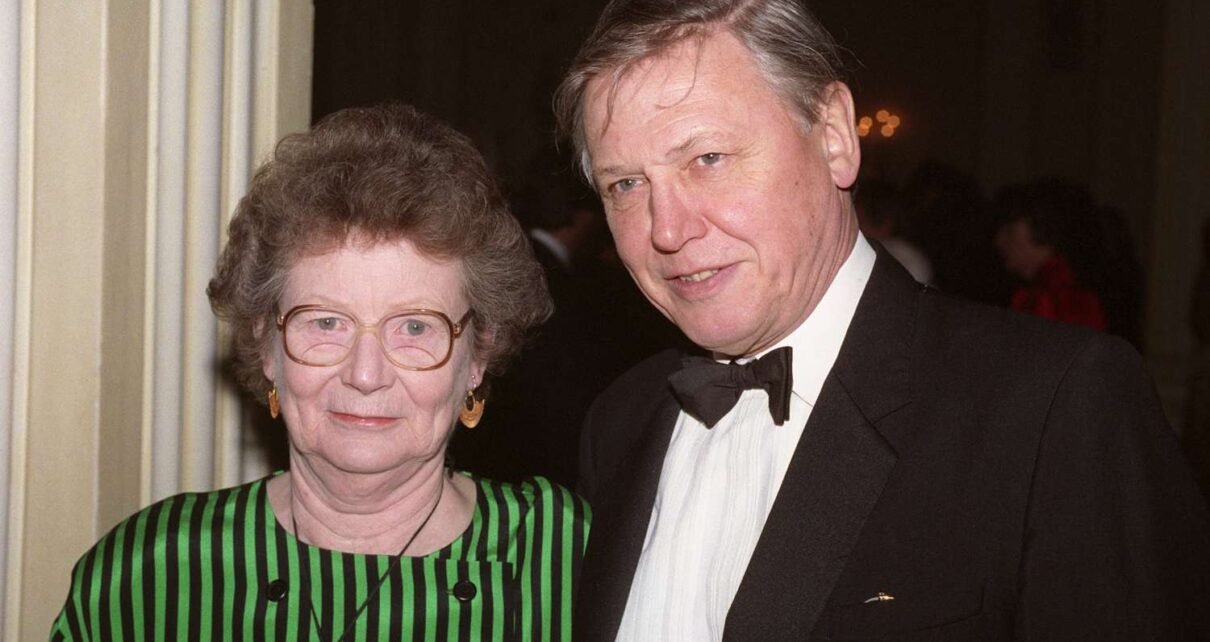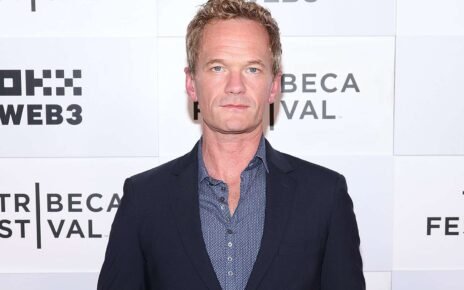Renowned broadcaster and natural historian David Attenborough was married to wife Jane Elizabeth Ebsworth Oriel for nearly 50 years.
Their marriage, which lasted from 1950 until she died in 1997, was a cornerstone of Attenborough’s life, impacting him both personally and professionally.
Attenborough’s work, known for its detailed and passionate portrayal of the natural world, has encompassed over 100 documentaries released since 1954. His latest documentary, Secret World of Sound With David Attenborough began streaming on Netflix in August 2024, wherein the naturalist explores the essential role of sound in nature, investigating how it shapes and influences the daily lives of animals.
While he has worked on various projects since the loss of his wife, Attenborough’s relationship with Oriel provided stability and support throughout the majority of his career. He has been open about the profound grief he experienced after her death. In his 2002 memoir Life On Air, the historian described her as the “focus” and “anchor” of his life and said that without her, he was “lost.”
Here’s everything to know about Jane Elizabeth Ebsworth Oriel and her decades-long marriage to iconic TV host David Attenborough.
Attenborough and Oriel married in 1950
PA Images via Getty
In 1950, Attenborough and Oriel wed when they were 24 and 23 years old, respectively. The pair then moved to Richmond Upon Thames in London, where they started their family and built a life together.
They welcomed two children
Nancy Cowan /Sunday Mirror/Mirrorpix via Getty
Attenborough and Oriel had two children together, son Robert and daughter Susan. Robert is a lecturer in bioanthropology and Susan was the head of a primary school before leaving her job to work for Attenborough in the wake of Oriel’s death.
“I was getting myself into a mess without my wife,” he told The Telegraph in 2016. “She came and helped and eventually became a partner in my little company.”
While Attenborough has a close relationship with his children — Susan works with him and often visits to stock his fridge, he told the Daily Mail in 2009 — the TV host has expressed regrets over missing significant portions of their early years due to work commitments.
During an interview for Radio Times in 2017, he told documentarian Louis Theroux, “If I do have regrets, it is that when my children were the same age as your children, I was away for three months at a time.”
“If you have a child of six or eight and you miss three months of his or her life, it’s irreplaceable,” he said. “You miss something.”
Attenborough added that his frequent absences became somewhat of an ongoing joke.
“There used to be family jokes,” he told The Guardian in June 2017. “You know, ‘You don’t remember that, Father, do you, because you weren’t there!’ ”
Attenborough was with Oriel for her last few moments before she died in 1997
Evening Standard/Hulton Archive/Getty
In 1997, while Attenborough was filming The Life of the Birds in New Zealand, he received news that Oriel had fallen into a coma due to a brain hemorrhage. Rushing back to the U.K., Attenborough made it to her side in her final hours. She died at the age of 70.
He later wrote about the experience in his memoir Life On Air, sharing that she “gave [his] hand a squeeze” in a final gesture before her death.
Attenborough still lives in the house they shared
Steven Paston/PA Images via Getty
While Oriel’s death left a void in his life, Attenborough never considered moving out of the home where they built a family, choosing to preserve the sentimental nature of the memories created there.
“What would be the point? I would be leaving the home we made together, the garden we built up,” he told the Daily Mail. “I think it’s probably sentimental. This house is all bound up with her. I feel her here as much as anywhere.”
Attenborough’s work helped him cope with the loss of Oriel
Jane Barlow/PA Images via Getty
Following Oriel’s death, Attenborough found solace in his craft. He threw himself into various projects, finding that his connection to the wild is where he found peace amid loneliness.
“In moments of grief — deep grief — the only consolation you can find is in the natural world,” he told The Telegraph in 2011.
Attenborough has also noted that having a purpose and a sense of obligation helped him cope with the loss.
“I was in the middle of a series when my wife died. I took time off, of course, but there was an obligation there. There were things to do,” he told the Daily Mail. “I did cope by working, and again it was just the most fantastic luck that I was able to.”
The historian added that the support of colleagues and collaborators served as helpful motivators to get back to work.
“What is important is that there are people around who say to you, ‘Look, we desperately need you, you know. We do desperately want you to write that script. Could you possibly do that?’ It is a great relief when there is somebody driving you to get on with things.”




